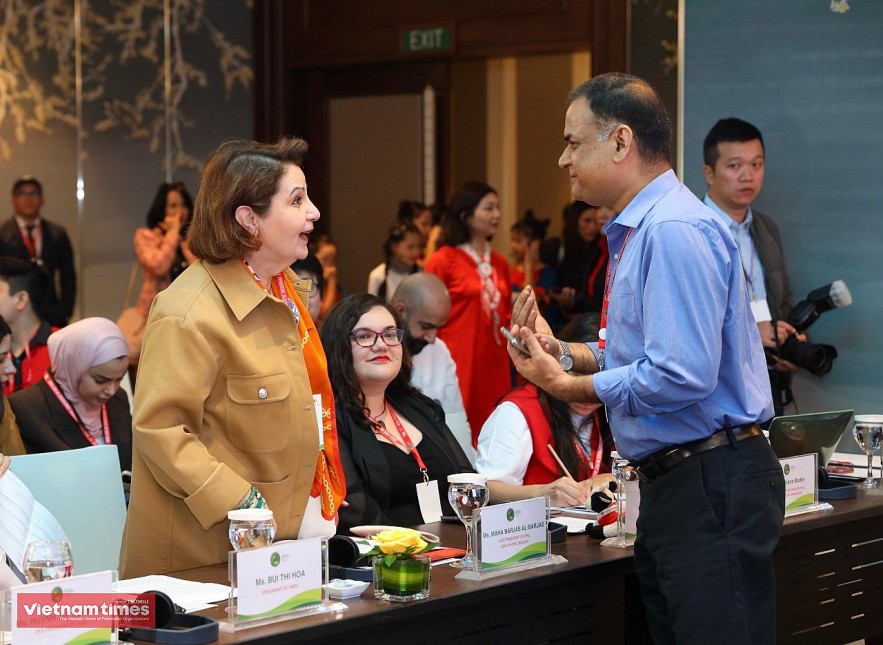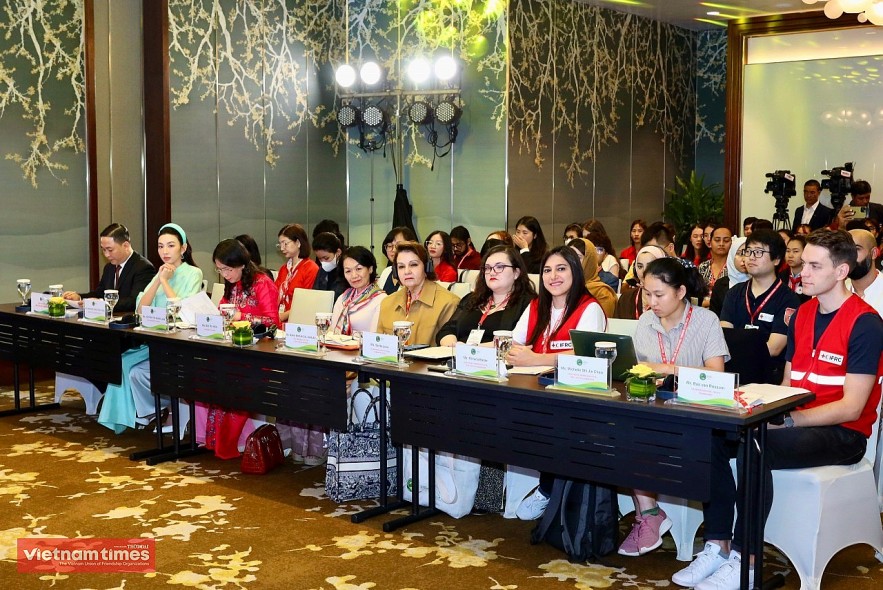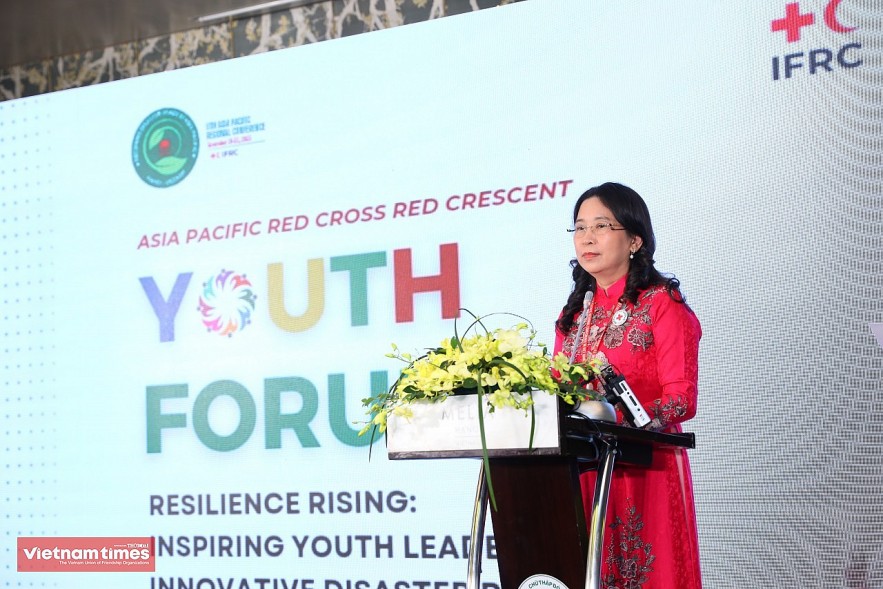Maha Barjas Al-Barjas, Vice President of the International Federation of Red Cross and Red Crescent Societies (IFRC), stated that as the world gradually returns to normalcy after the pandemic, we must continue to address challenges, from natural disasters to social conflicts. These challenges have negative impacts on young people, such as disruptions to education, unemployment, gender-based violence, and other health risks.
 |
| Maha Barjas Al-Barjas, Vice President of the International Federation of Red Cross and Red Crescent Societies (left) discussed with delegates at the event (Photo: Dinh Hoa) |
The theme of the forum, “Improving Resilience: Youth Leaders Inspire with Creativity to Prepare for Disasters,” aims to shift the mindset and approach for today’s young generation.
“IFRC believes that children and young people are not just passive recipients of support, but can also become game-changers in disaster preparedness,” said Maha Barjas Al-Barjas.
During the forum, delegates discussed five topics, including challenges and opportunities for young people, skills to increase the use of digital technology and environmentally friendly products, building knowledge about innovation and digitalization, and preparing for disaster response.
 |
| At the event. (Photo: Dinh Hoa) |
According to Sarita Love, president of the Asia-Pacific Youth Network (APYN), digital platforms such as Facebook, Instagram, and regional chat rooms help connect young people across borders. These platforms provide opportunities for career development, exchange, and connection among young people. She believes it is essential to utilize digital platforms more frequently and efficiently to enhance young people’s involvement in disaster response. It is necessary to create opportunities for young people to participate in program creation, event organization, public speaking, and sharing opinions at relevant forums.
“At the Asia-Pacific Youth Network, our leaders place great importance on the digitalization of volunteer activities. We organize numerous online seminars on topics such as climate change, mental health, and innovation. The geographical distance between countries in the Asia-Pacific region presents challenges in connecting young people. The Asia-Pacific Youth Network is striving to find effective solutions to apply digital platforms and overcome these challenges,” she added.
The Youth Forum sets the stage for various activities within the 11th Asia-Pacific Regional Conference of the Red Cross and Red Crescent Societies (AP-11), hosted by the Vietnam Red Cross Society. The conference, themed “Becoming Disaster Ready in Asia-Pacific,” takes place from November 20 to 23, with the participation of 100 Vietnamese delegates and 350 international delegates.
 |
| Huynh Thi Xuan Lam, Vice President of the Vietnam Red Cross Society. (Photo: Dinh Hoa) |
According to Vice President of the Vietnam Red Cross Society Huynh Thi Xuan Lam, this is the second time Vietnam Red Cross Society has hosted the regional conference. With the world facing numerous humanitarian issues and Vietnam’s enhanced position, she hopes that young delegates from national associations in the Asia-Pacific region, including Vietnam, will showcase their intelligence, youth, and creativity to actively contribute to climate change and disaster response activities.
| The Asia-Pacific Regional Conference of the Red Cross and Red Crescent Societies is held every four years. This is an important event in the Asia-Pacific and Middle East-North Africa regions, with the participation of all national associations. |
Vietnam rises to green tourism challenge
The surge in Vietnam’s tourism development in recent years, which has turned it into a spearhead economic sector, has taken a toll on the environment. The government is now targeting green and sustainable tourism development in its tourism development strategy by 2030, with a vision to 2050, and a growing number of tourism business are rising to the challenge.
Vietnamese expert calls for enhancing community resilience to deal with natural disasters
In October 2020, according to the National General Statistics Office, central Vietnam was hit by four tropical storms with heavy rains and landslides that killed 129 people and damaged more than 111,200 houses. Even though the local people are no strangers to killer tropical storms, Nguyen Ngoc Huy, a Vietnamese international expert and senior advisor for Oxfam on climate change, believes more needs to be done in order to save lives and property after natural disasters.








